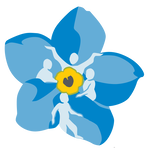|
Life is More than Memories
I participated in a workshop held by Bethany Care in Calgary a few years ago. They discussed their philosophy of care which is called Supportive Pathways. The instructor spoke of how to look to one's own personal beliefs and how they relate to care for an individual with dementia. She emphasized the importance of providing meaningful activities for the individual, even if that individual wouldn't remember the activity later. She challenged a common question that I have heard several times in conversations with family and individuals while in this business, that question is "why go to the trouble of ______ (ie: getting him/her dressed for the weather, going out, bringing him/her to the coffee shop/ice cream parlor/wherever, only to have him/her not remember the outing?" The instructor clearly stated in response to the question "Life is more than memories." It may be true that the senior might not remember getting the specialty coffee/ice cream or whatever it was, but you can be most certain that in the present moment- they really, REALLY enjoyed it! Isn't that what life is really, really about? As a family member who is now becoming a Caregiver, you have a lifetime of family history and dynamics with your loved one and you may wonder, how it will all work?
Your loved one may have been a difficult individual who has had the same behaviours, attitudes and outlook their whole life. They might not even realize or not want to acknowledge any past consequences from their behaviour or actions. Also, if there is cognitive impairment or delirium present, then that adds to the complexity of the situation. You may have feelings that had not been worked through and feel incomplete with them. Recognize your loved one must initiate their own healing process, if they are able or desire to. They cannot be “fixed”. With some preparation, you can put together a plan that will give you better insight into the approach you will take to be a Family Caregiver and it may prevent or at least smooth the tougher times a little better. Start off with spending some quiet time with yourself and check in for guidance. Use a notebook and write out the topics and incidents that set you off and caused you to react. Identify your hot buttons or triggers that caused you grief, anxiety or stress. These can include certain subjects, names, words or phrases and even non-verbal triggers such as attitudes, looks, moods and other specific behaviors. What you are doing it bringing to light the triggers so you can reduce your reactivity to them. If your trigger is hit, you will instantly recognize it as a trigger and be better able to follow through on your predetermined action rather than be swept away with your reactions. Next, write out your boundaries. In a healthy relationship, boundaries outline how the relationship will work – what is acceptable and what is not. Factor in what you know about how your loved one expresses their self, consider the general mood they carry and the language they use. For example, a father who has always been demanding and loud may make his requests sound more like commands. The son may accept this of his dad but not accept swearing and verbal abuse. Creating boundaries ahead of time keeps you from reacting in the moment. Don’t over complicate this process of creating boundaries, it will feel natural to you as you will be honoring yourself and your well- being. Your boundaries will be a measurement tool to help you determine if your role as a Family Caregiver will be a fit or not. If your boundaries are constantly being crossed, you will know that to continue will not be in the best interest of your health and well- being. You will be empowered to seek out other options. You can still be part of your loved one’s care but in the capacity that is sustainable and healthy for you. |
AuthorRobyn Pearson Archives
May 2024
|
|
Serving Locations
Airdrie Calgary Didsbury Cochrane Red Deer Head Office
Airdrie, AB (403) 980-0199 |
|
Follow
|

